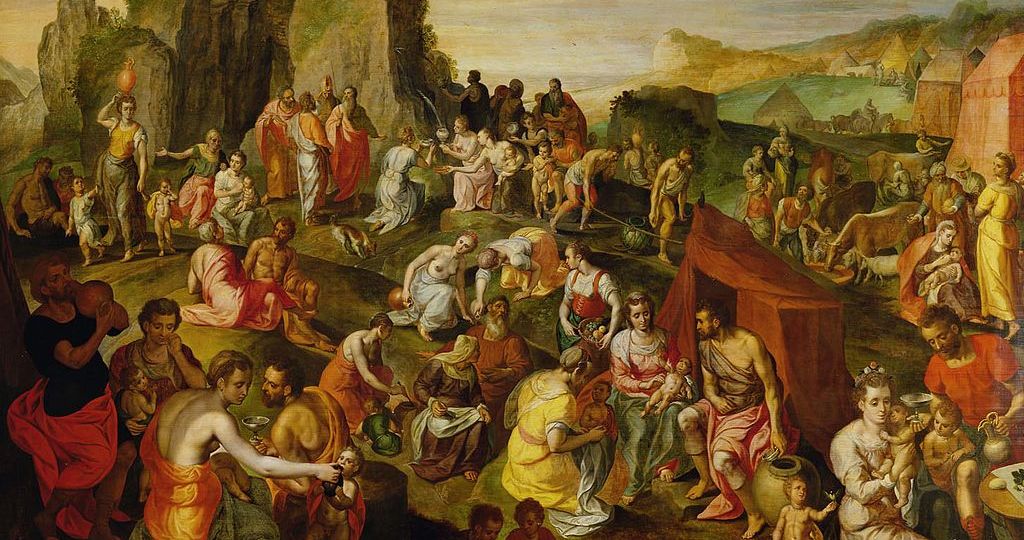
Parashat Hukkat: Adulting Isn’t Easy
(originally appeared in the the Jewish Community VOICE, June 25, 2025)
Immediately following the death of Miriam, the Israelites find themselves in the wilderness without water and begin complaining to Moses: “Why did you bring us up from Egypt to this bad place? It’s not a place of seed and fig and vine and pomegranate, and there’s no water to drink!” (Num 20:5)
Moses and Aaron come before the people at the entrance to the Tent of Meeting, fall on their faces in prayer, and God appears to them and gives Moses very specific instructions: “Take the staff and assemble the congregation, you and Aaron, your brother. And you shall speak to the rock before their eyes, and it will give its water. So you shall bring water out of the rock for them and give drink to the congregation and their cattle.” (Num 20:8)
Moses famously fails to follow instructions. Instead of speaking to the rock, he speaks to the people, saying, “Listen up, you rebels, should we bring water out from this rock?!” (Num 20:10) And then Moses lifts his hand and strikes the rock, not once but twice, with his staff. Water comes pouring out and the congregation and their cattle drink until their thirst is quenched.
It is surprising—this is an understatement—that despite his deviance from God’s instruction, Moses succeeds in extracting water from the rock. Why would God allow Moses to succeed in facilitating the miraculous flow of water from the rock when he had so blatantly disobeyed the Divine’s command?
Could it be that Moses misunderstood the instructions, and is being given an opportunity to save face in front of the people?
This is unlikely, given what happens next: Moses is punished, and he and Aaron are told they will not be permitted to enter the Land of Israel with the people, because they failed to make God holy before the eyes of the people.
Professor Richard Elliott Friedman offers an explanation for why Moses is capable of summoning the miracle of water from the rock, pointing out that Moses is the first person in the Torah who changes a miracle. While Joseph interprets dreams and credits God for his ability to do so, Moses first announces the miracle and then makes it happen by doing his own thing. Friedman suggests this represents a shift in the human relationship to the Divine, which begins with Moses: “God entrusts humans with more responsibility and control of our own destiny.”
Later in the Tanakh, the Hebrew Bible, Joshua will call for the sun to stand still in the sky without any direction from God. Esther will be required to save the people using only her natural human powers. Throughout the Tanakh, Friedman concludes, “humans are forced to grow up and become more self-reliant.”
So it is with our own children as they become adults. If we want them to learn how to do things on their own, if we want them to be responsible, self-reliant, resilient, we can’t do everything for them. As our own now-adult children worked summer jobs during high school, graduated high school, went to college and graduate school, they often complained to us that “adulting isn’t easy.” We’d agree with them, and do our best to allow them to find their own way. Parenting isn’t easy, either.
Friedman’s interpretation reminds me that God, like a loving parent, wants us to take responsibility for ourselves and, out of Divine love for us humans, allows us to grow and realize our potential.
Image: Moses strikes water from the rock (public domain) Artist: Gillis Mostaert (1528–1598)
